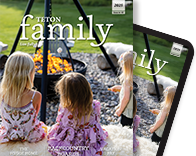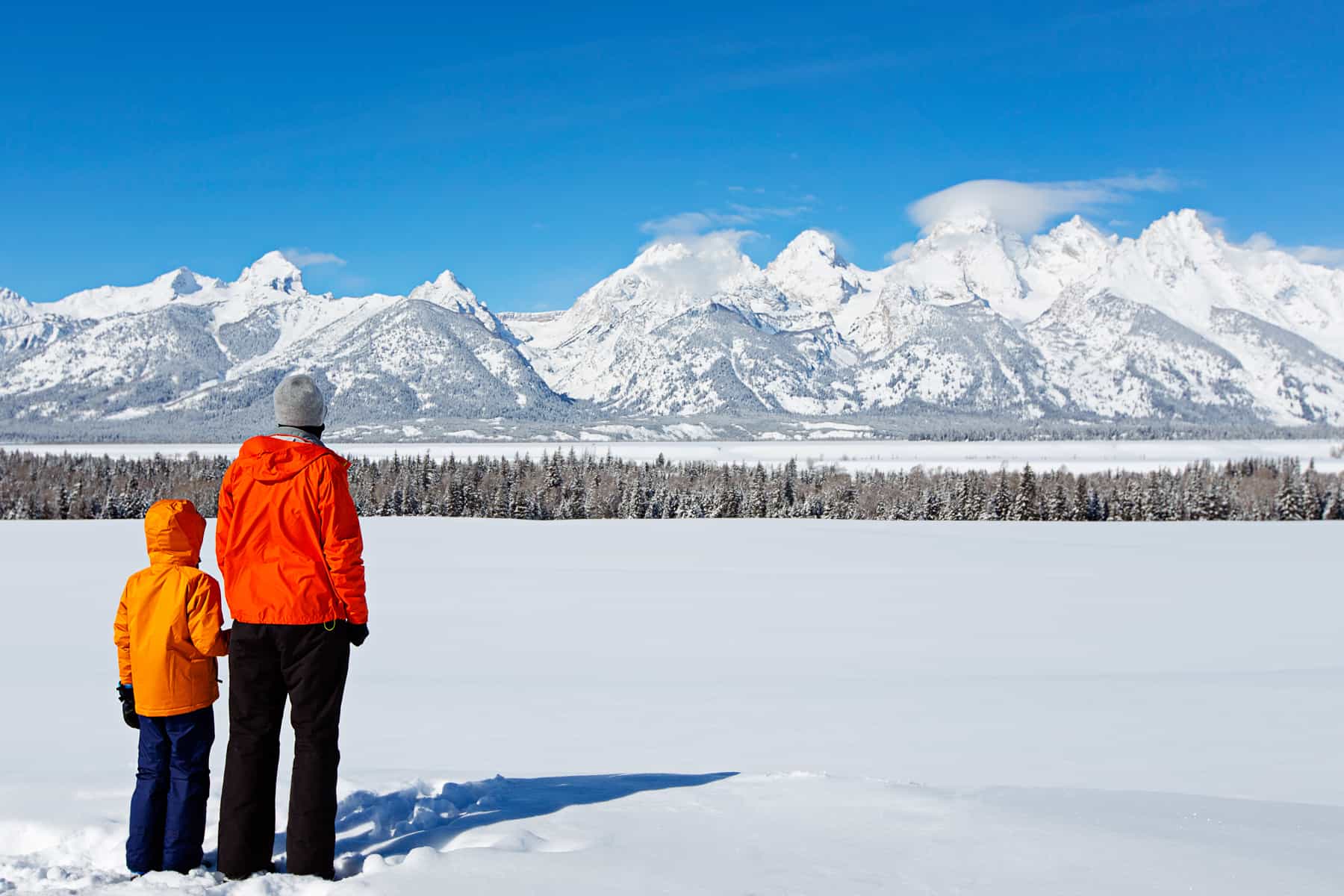By Kristine Kopperud
—
Fact: Mountain towns make an epic home base for families. From the challenging outdoor pursuits, to the inspiring hell-or-high-water fortitude of fellow residents, mountain living is good for the minds and bodies of kids and parents alike.
However, that balance (opportunities-to-participants) gets decidedly trickier when the adults in charge are no longer in tandem. Single parents—whether it’s due to a legal split, personal preference, or tragedy—must navigate the territory of parenting by a different map overlay, one with the steep terrain outlined in greater detail.
First, I’m a resident of Singledom, on the tail end of a years-long, whole-life divorce (the breakup of my marriage, our joint business, and our farm home/property). For the first year, I told people that between lawyers, refinancing, and nondisclosure minutia, the legal machinations of divorce were my full-time job. It forced a total reset of my orientation to work, my community, and the care of my teen daughter, even though I was her go-to parent inside the relationship, as well.
Some things I aced, like driving double-time to her riding lessons and maintaining a counselor she loves, even when it cost me double digit hours of productive work time each week. On other things, well, I was ‘that’ divorcee, rushing too fast and frantically toward my best re-partnering prospects.
Now that I’m almost fully on the flip side, I recognize what a gut-punch it was to lose the identity that, in large part, defined me, and I know intimately what it takes to stand up again and live well. Here’s a look inside the realities of single-parenting in a ski town, as well as tips for supporting (without judging!) the solo dads and moms in our midst, both as parents and as individuals.
No. 1: The Fishbowl Effect
We mountainites all know each other down to our hubcaps, and often, the particulars of why a parent is single. This makes “getting out” immediately awkward, whether a parent has their children in tow, or they’re suddenly the odd partner out at the neighborhood barbecue.
Despite friends’ best intentions, I know the feeling of being that “plus-one” to the everyday happenings I once attended as a family unit. I think my girlfriends felt I needed gendered support—a show of solidarity they weren’t always able to provide. And their partners (my guy friends) tried their damndest not to say anything about the breakup at all, which, given its impact on my life, meant we all went mum pretty easily.
So if you happen to know both halves of the cleaved melon, or you cross paths a lot, ask about the kids and what’s going well, instead of how they’re coping or the latest gossip on the subject (even when offered, and yes, I stooped to it many times). Give new singles the space to find their groove, and ask what might make it easier for them to maintain their role in the carpool, say, or the school snack-bringing.
“I needed to heal a little bit, needed to step away and work on myself a little, before I could get back out there and be ‘Coach,’ who has some answers,” says Carlos Elizondo, former director of Jackson Hole Youth Soccer and co-founder of CGA Academy Soccer Club.
Elizondo and his 11-year-old son, who lives with him half the time, relocated back to Jackson from Idaho Falls and built a hybrid household with his sister’s family.
“I stepped completely away from soccer for a year and nine months,” he explains (and that is a long time for someone who has been a director of clubs, and coached the Western Region Olympic Development Program, as well as men’s and women’s college soccer.) “Part of it was an identity thing—with my work and my relationship with my community.”
And a piece of that identity is romantic.
I needed to heal a little bit, needed to step away and work on myself a little, before I could get back out there and be ‘Coach,’ who has some answers.”
— Carlos Elizondo, former director of Jackson Hole Youth Soccer and co-founder of CGA Academy Soccer Club
Though my own friends could hardly help it, I got caught up in their swift and well-meaning attempts at match-making (i.e., sorting through the scant small-town Rolodex to weigh the candidates). Beyond finding warm-blooded prospects, I found dating on any level to be cramped by available child care, and just too many inquiring minds. In my first year, I had to vet and hire an overnight nanny for the two (count them: two) nights I spent away from home, just to get over the rim of the fishbowl.
Somewhere in the scarcity of evenings to myself, I also lost all awareness of timing (and propriety?). At one point, I asked a crush-acquaintance out, then when plan-making started to drag on, jumped right ahead and propositioned him before the weekend even started. I remember reading and rereading the text before I hit “send,” thinking, Is this nuts? But sent it anyway. Frenzied by the knowledge that I didn’t have a free evening for at least another month, I simply couldn’t see what crazy I was making. (He sidestepped my headlong agenda graciously, but such is best avoided.)
No. 2: The Built-in Babysitters May Be (Literally and Figuratively) Far Away
Breaking up in a mountain town, where most people have built a life without extended family, creates immediate challenges for a single parent. Suddenly, we’re responsible for many more drop-offs, pick-ups, and evenings without backup, and often with a mountain pass to commute, too.
Even at a distance, a change in family relations has a ripple effect among extended family, amplifying feelings of isolation.
“I had that backup system with my son’s grandparents on his mom’s side,” Elizondo explains. “They were a big part of my life, and when that changed, it was hard. You go abruptly from being good friends with your in-laws to casual acquaintances, unfortunately. I know they still care about me, but they’re at arms-length now.”
To make up for family that feels lopped off, it’s helpful to cultivate “chosen kin,” or multigenerational liaisons that model healthy relationships. (Hint: Be the family that has the coveted snacks, or the parent at the race, if a single just can’t make it due to … life.) Losing half the parental figures in our household made my daughter hyper-aware of classmates who did have two involved parents, prompting healing discussions of what she needs from me in our altered orbit.
No. 3: The Kids Really Are Alright
What’s cool about mountain towns is that they attract all species of outdoor enthusiasts, and that’s a boon for kids born into them. I’ve found that outdoor sports, with their high-stake physical and environmental challenges, pull kids together in “found family” packs bound by (I argue) more loyalty and trust than their suburban counterparts.
One mountain mom I know put it this way: “I’m OK with my kid skiing backcountry because I know the other kids out there with him, and their families, and the instructors and patrollers who’ve been watching out for them since they first clicked in. They know how to be safe, and they hold each other accountable.”
The same code binds us as parents. If there’s a single in your mix, make them feel welcome in mixed-married company. Don’t do things that default to pairing off, if you can help it, and remember that singles run very tight schedules, due to limited time away from their children. Don’t blow them off, be late, or change plans last-minute.
Over the longer haul, support single parents’ career floating, as their roles and visibility shift within the community, and acknowledge the loss of identity they might be grieving.
“Being single changes how people look at you, without their meaning to make it a status thing,” Elizondo explains, making it harder to drift a while without drawing attention. “I’ve gone through the gauntlet,” he adds, “mowing lawns, selling things online, waiting tables, all while getting myself sorted out.”
Eventually, though, the psychosocial science reveals itself to be true: kids really do need just one adult who cares, and at any given time, a single parent (or their teacher, or their neighbor, or their chairlift-mate) can be exactly that.
“You can’t make things perfect,” Elizondo concludes, “but you can make things outstanding and amazing. Just keep asking, ‘What can I learn?’ followed by ‘What can I give?’”

